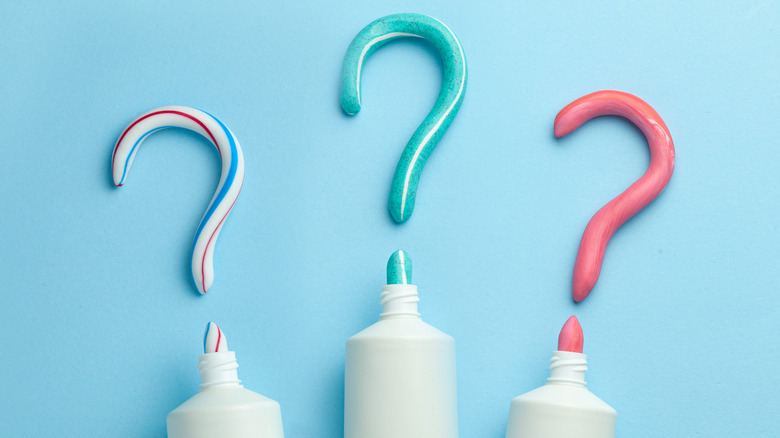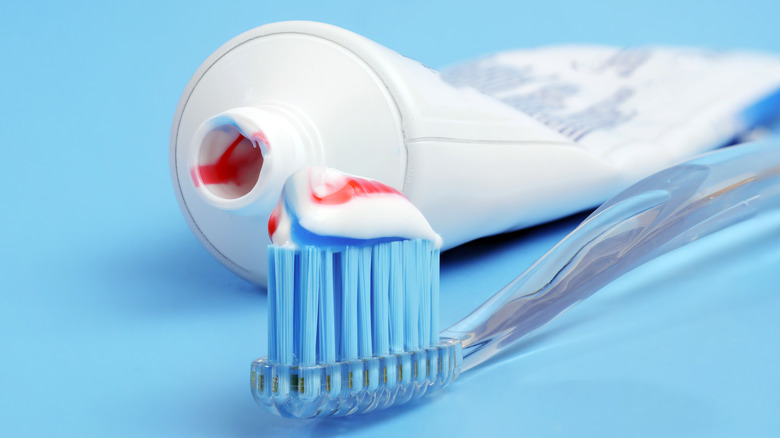Should You Use Fluoride Or Fluoride-Free Toothpaste?
According to the American Dental Association (ADA), toothpaste must contain fluoride in order to receive the ADA Seal of Acceptance (per MedicalNewsToday). Fluoride, per Shape, is a natural mineral that rocks release into soil, water, and air. Drinking water contains trace amounts of fluoride, and the Centers for Disease Control and Prevention (CDC) says that many cities add fluoride to their drinking water. Nevertheless, fluoride found in toothpaste is more concentrated than fluoride in water. As a result, it's more effective when it comes to protecting your mouth from harmful bacteria and cavities.
Another benefit of fluoride is that it can repair damaged teeth, if you catch the issue early enough, through a process called remineralization. This process can help your teeth stand up against decay and limit how much acid is produced by the bacteria on your teeth. These acids, which can lead to cavities, are caused by eating candy, crackers, pasta, and other carbohydrates. The bacteria feed off of the carbs and, in turn, your enamel is broken down. When this happens, saliva comes to the rescue and coats your teeth with essential minerals. Using toothpaste with fluoride helps saliva build an even stronger barrier.
When to consider fluoride-free toothpaste
Though fluoride offers a host of benefits, Shape says it can cause dental fluorosis in children. As dentist Victoria Veytsman explains, dental fluorosis is a condition that causes discoloration of teeth that appear as almost translucent white spots. "Children are more at risk for it because their teeth are still forming," Veytsman told Shape. The good news is that these spots don't threaten the health of the teeth or body.
Swallowing fluoride can also be dangerous because it's a mineral, and consuming lots of minerals can be toxic. If you swallow a little toothpaste, you don't have to panic, but you should be particularly careful when using a fluoride mouthwash. If you experience symptoms like stomach pain, diarrhea, vomiting, or drooling, the Icahn School of Medicine at Mount Sinai advises seeing a doctor. Kids under the age of 6 are more susceptible to fluoride poisoning, so it's okay to go fluoride-free with young children.
Additionally, a 2019 study published in Environmental Health found that high levels of fluoride can lead to cognitive issues and thyroid problems. If you find that fluoride-free is the best option for you, dentist Joyce Kahng recommends incorporating nanohydroxyapatite and nanosilver into your oral hygiene routine (per Shape). Nanohydroxyapatite contains the same minerals as enamel, per a 2021 study in the Journal of International Society of Preventive & Community Dentistry. A 2020 study in Bioinorganic Chemistry and Applications found that nanosilver can help protect against bacteria.


